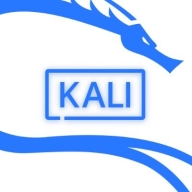

Bugcrowd and Kali Linux operate in the cybersecurity domain, focusing on vulnerability detection and penetration testing. Bugcrowd holds an advantage with its managed services and customer support, critical for businesses requiring professional guidance.
Features: Bugcrowd stands out with its vulnerability management platform, managed security services, and global expertise. Kali Linux excels in its extensive suite of pre-installed security tools, its use of open-source software, and a wide array of applications like Nmap and Metasploit for penetration testing.
Room for Improvement: Bugcrowd could enhance its platform by increasing community support options, expanding the variety of security tools available, and integrating more personalized user feedback. Kali Linux could benefit from enhancing customer support, improving user interface ease, and adding more intuitive tutorials for beginners.
Ease of Deployment and Customer Service: Bugcrowd provides an easy deployment process with excellent customer service, making it appealing to organizations needing structured assistance. Kali Linux's open-source nature allows straightforward installation but lacks formal customer service, instead relying on a strong community for support.
Pricing and ROI: Bugcrowd operates on a subscription model, offering managed security services and promising a high ROI through expert insights. Kali Linux, being free and open-source, offers significant cost savings upfront, ideal for cost-conscious users, though ROI depends on user expertise and self-directed testing efforts.


By combining a vast and diverse workforce with a results-driven model, crowdsourced security programs outperform traditional methods-every time.
Kali Linux is widely used by organizations for penetration testing, vulnerability assessments, web application security, network audits, ethical hacking, and open-source intelligence, providing extensive free features.
Organizations run Kali Linux in virtualized environments alongside other operating systems, employing tools for automated scans, malware identification, infrastructure testing, and application development or hosting. These users benefit from lower maintenance requirements and a smaller footprint. The toolset includes Nmap, SQLMap, Metasploit, and Hydra, ensuring effective security assessments. Its high scalability, performance, user-friendly interface, and extensive documentation enhance the platform's usability. Known for stability, flexibility, and virus resistance, Kali Linux supports web security, troubleshooting, and configuration tasks comprehensively.
What are the most important features of Kali Linux?Kali Linux can support industries in improving security through stable and flexible environments that resist viruses and provide extensive documentation. Users employ it for web security, troubleshooting, and configuring capabilities. Necessary improvements include automation, user-friendliness, and integrating AI and blockchain. Enhancements in security features, faster installations, and better learning tools are also essential. Machine learning integration and non-enterprise user functionalities can address current limitations.
We monitor all AWS Marketplace reviews to prevent fraudulent reviews and keep review quality high. We do not post reviews by company employees or direct competitors. We validate each review for authenticity via cross-reference with LinkedIn, and personal follow-up with the reviewer when necessary.